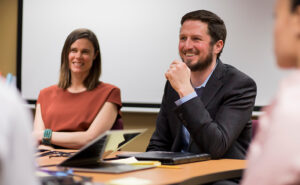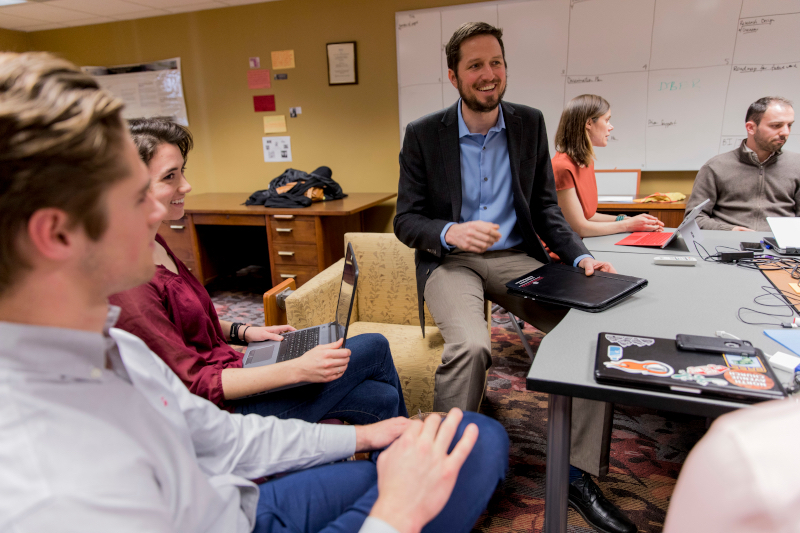
Engineering Education Transformations Institute awarded $1 million National Science Foundation grant
The University of Georgia will serve as a catalyst for research in the emerging field of STEM education thanks to a $1 million grant from the National Science Foundation (NSF).
“When we think of a college classroom we often picture a professor in front of a large hall giving a lecture,” said Joachim Walther, director of UGA’s Engineering Education Transformations Institute (EETI) and an associate professor in the College of Engineering. “You might have asked yourself, why is this the way we do education or what are alternatives to help students learn?”
Universities are asking the same questions, at a time when student learning needs to evolve to keep up with an increasingly complicated world. Reforms of instructional approaches, underway at institutions around the world, require one thing to succeed, according to Walther: reliable information on how learning works, in different contexts and for different students.
UGA’s Engineering Education Transformations Institute will use the NSF grant to help STEM professors and lecturers at universities and colleges in the U.S. conduct research on student learning at their institution. The project will focus special attention on institutions in the Southeast that serve large numbers of underrepresented students in their STEM programs.
“The overarching goal of this project is to expand the community of scholars who have the skills to conduct high-quality, qualitative and mixed methods research in STEM education,” said Walther. “We want to help people move away from trial-and-error and into a more systematic, research-informed process of educational innovation.”

Associate professor Joachim Walther, counterclockwise from top middle, talks with undergraduate students Aubree Van Winkle, and Davis Ray during their CLUSTER research group meeting.
This project builds on the success of EETI at UGA in creating an active community of professors across the College of Engineering who work together to innovate and better understand education in the context of their engineering programs.
“EETI is an innovative, next-generation unit that seeks to transform engineering education through building social capital and shared capacity around the scholarship of teaching and learning in engineering,” said Walther.
The NSF grant will allow EETI to create the ProQual Institute for research methods in STEM education. The ProQual Institute will engage faculty from universities in the Southeast and draw half of its participants from minority-serving institutions. Walther notes faculty at these colleges and universities often don’t have access to the same resources as colleagues at larger institutions. In addition, he believes the conversation about educational research will benefit from the perspectives of instructors and researchers at minority-serving institutions.
“There have been efforts to increase diversity in STEM disciplines for decades but the numbers haven’t changed much, so that suggests we need to understand this challenge at a much more fundamental level,” he said.
The ProQual Institute will include week-long summer and winter schools hosted by UGA, as well as ongoing support for STEM education researchers through online communities, social media and other resources.
“We want to create communities of practice that people continually engage with, instead of a one-off event” said Walther. “We also want people who participate in the summer and winter schools to become resources and change agents in their local settings.”
Walther believes the educational research capacity developed through ProQual has the potential to create profound, positive changes in local STEM education contexts, such as fundamentally improving the student experience and helping expand diversity in STEM fields.
“EETI has an amazing team and the range of expertise of our engineering education research faculty puts us in a unique position to be able to create this initiative. It’s exciting to be able to do this work locally, but it’s even more exciting and rewarding to be able to help STEM educators regionally and nationally.”


